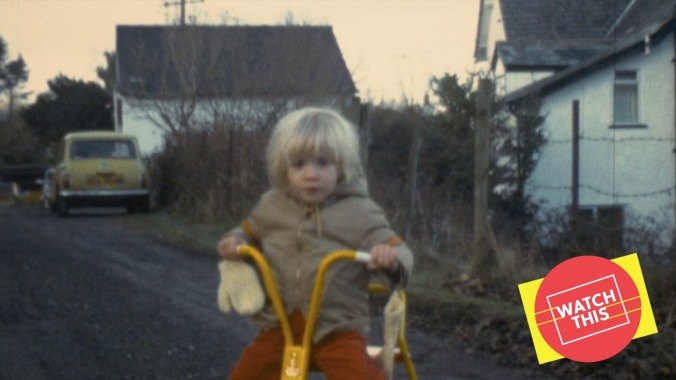Sarah Polley solves the mystery of her own parentage in the slippery, poignant Stories We Tell

Watch This offers movie recommendations inspired by new releases, premieres, current events, or occasionally just our own inscrutable whims. This week: In honor of the Netflix release of Sundance sensation Dick Johnson Is Dead, we’re looking back on other documentaries with deeply personal angles.
Stories We Tell (2012)
The hook is as immediate (and tawdry) as a tabloid headline or afternoon talk show: Canadian actor-director Sarah Polley (who aptly made her international breakthrough in a tale of complex familial circumstances, Atom Egoyan’s 1997 The Sweet Hereafter) dishes the dirt about her family and its history. Narrated by her father, the esteemed British-Canadian actor Michael Polley, Stories We Tell is both an exercise and an opportunity for the many members of the Polley family (whom we hear from, individually and collectively) to reconstruct the life of the late Diane McMillan and acknowledge the hole her 1990 death left in their lives.
For as long as she’s been alive, Polley has heard whispers about her parentage. Coming off the success of her Oscar-nominated Away From Her, she set out to explore the history of her mother, McMillan, partially as a way to address those years of gossip and hearsay—to head some theories off entirely, while getting at a truth that would leave all parties satisfied. Everyone has their say: her brother, her sister, her father, Diane’s friends and lovers. Their contradictory accounts and clashing remembrances hold equal footing; they’re part of Polley’s logical attempt to solve the mystery of her own origins. Memory, her film acknowledges, isn’t fixed; it’s a protean and elusive phenomenon that allows us to convert the objective into the subjective.
All these things percolate in the mix alongside personal dissatisfaction, Montréal sensuality, and exquisite ’70s fashions. There’s an ambition to Stories We Tell, dramatically and narratively, that calls to mind Orson Welles’ F For Fake—this is a similarly tricky film that has its cake and eats it, too. The reenactments are shot on 8mm, and for viewers of a certain age, the texture of that medium is almost synonymous with memory; it triggers the same synapses as childhood reminiscence. Much of this footage is a re-creation of possible events shot years after the fact, and the Diane Elizabeth McMillan it presents is an actor presenting a physical embodiment of the concept that the many Polleys have spent time trying to express. But though she’s not an actual part of the family, she allows the viewer an unexpected (and unprecedented) degree of empathy for the real Diane and for the real (and reel) Polleys.
Rational and reasoned and blessedly Canadian, Stories We Tell lays the twists and turns of the Polley family history out for all to see, encouraging the viewer to analyze, dissect, and unravel the many skeins of their own family history in turn. Simple questions, the whos and the whys especially, do not always yield simple answers, and it’s a testament to the story that Polley and her family tell that when catharsis does arrive, it is revelatory and confusing and unexpected. No two families share the same exact story, but each step taken—every choice made of the near-infinite possibilities in creating and raising another life—resonates with someone, somewhere.
Availability: Stories We Tell is currently streaming on Amazon Prime and on Tubi TV (with ads). It can also be rented or purchased digitally from Google Play, iTunes, YouTube, Microsoft, Redbox, Fandango, and VUDU.